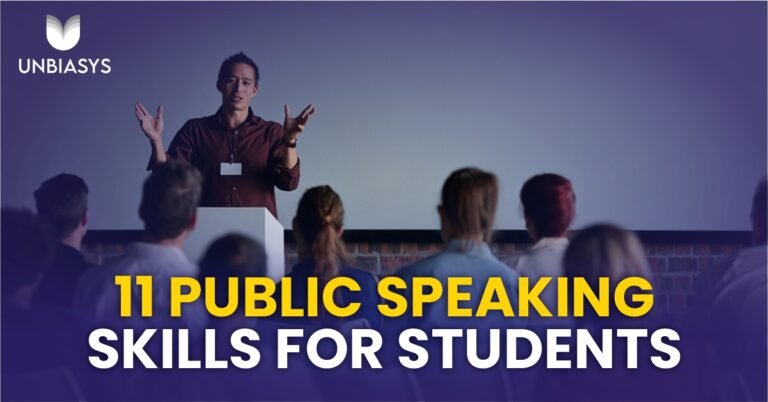Table of Contents
The avalanche of statistics causes many issues. Why not focus on the most important hard skills? Or, when, how, and which soft skills are most important? So, what’s the recipe? Because the playing fields are similar, successful jobs require both soft and technical skills. Let’s zoom in!!
‘Power is a tool, influence is a skill; one is a fist, the other a fingertip.’
Nancy Gibbs
When hiring new employees, employers look for both soft skills and hard skills. Hard skills are much easier to assess than soft skills. For something as complex as an organisation, soft skills are inherently subjective and hard to measure.
Essentially, hard skills are learned and used in a different way than soft skills. Hard skills are often developed through formal education or professional experience. Specialised equipment knowledge, software programming, and possibly other resources are examples.
Soft skills are often seen as personality traits that people spend their lives honing. These factors often affect a person’s expectations, socialisation, or the first encounter with a problematic situation in their profession. A person’s whole business acumen can be thought of as a soft skill.
Collaboration, communication, and goal-setting are psychosocial characteristics that distinguish soft skills from technical or challenging skills. Success and advancement within an organisation often require learning a diverse range of skills. The best way to achieve your life goals is to work together with your soft skills and hard skills.
A combination of soft skills and hard skills is often required for jobs advertised online. To learn more about soft skills and hard skills, keep reading.

Soft skills
“People who wish to go into the future should have two skills to succeed – the ability to deal with people and the ability to sell.”
Shiv Khera, author
People’s soft skills affect how they work alone and together. This similar method of operation reveals a lot about a person’s smooth talents. Working under pressure and the desire to be courteous to others are examples of soft skills. Communication is a critical soft skill that many employers seek in their employees. Other qualities include diligence, cooperation, and attentiveness.

Soft skills are critical to an individual’s professional growth and an organisation’s search success. Soft skills are needed to create a positive work environment. Companies often seek candidates with both soft and hard skills when hiring for these jobs. Because soft skills are more challenging to acquire than hard skills, some employers prefer candidates with solid soft skills over candidates with strong hard skills.
Soft skills are those that are difficult to quantify but are intrinsically linked to the owner’s disposition. According to a survey, recruiters and strategic human resource professionals believe soft communication skills are as necessary as technical skills.
Soft skill sets such as the ones listed below have been in high demand.
- Agility
- Cooperation among co-workers
- Critical analysis on several issues
- Creative thinking
- Driving force
- Expansive thought process
- Flexible standpoints
- Having communicative skills that are simple and clear
- Perseverance
- Professionalism
- Persuasiveness
- Reliability and high standards of work quality
- Time management skill
Hard Skills
“Design is a way of life, a point of view. It involves the whole complex of visual communications: talent, creative ability, manual skill, and technical knowledge. Aesthetics and economics, technology and psychology are intrinsically related to the process.“
Paul Rand
Hard skills refer to mastering the art or competence in a specific technical knowledge acquired through other means. The same goes for your job or schooling. They can quantify their abilities. It means that someone has completed a specific act or series of actions required to complete a task. Advanced accounting students, for example, are likely to be more familiar with Google Spreadsheet and its calculating features.

Hard skill sets specific to each sector will be required. As hard skills examples, to work as a software developer, one must have extensive software abilities. Exams are also used in many other fields to assess prior knowledge and skills. Many more companies may be willing to teach technical skills on the job here.
Hard skill sets such as the ones listed below have been in high demand.
- Administration of a databases
- Advertisement campaigning
- Algorithms for storing and managing data
- Analytics and Numeric
- Bi/Multi linguistic skills
- Data collection
- Designing a UI
- Detailed software development knowledge
- Networking
- Portable apps programming
- Practical expertise
- Predictive analytics
- SEO/SEM
A CV usually lists technical skills. Skills that a company can easily spot Soft skills must be demonstrated in interpersonal interactions and public image. You must substantiate. Education and experience are required for jobs such as web design.
Also, data can show increased conversions while decreasing costs. The issue is proving you are a great worker and manager. What you say is useless. It is better to give examples of situations where they have used it and the positive outcomes.
Which Are More Important – Hard skills or Soft skills?
Soft skills are acquired spontaneously and are virtually never acquired via rigorous instruction. They are learned via self-education, practice, and experience. They may be taught via various mediums, including books, films, software, and interpersonal contact.
On the other hand, hard skills are gained via training and applying the talents for which a person has been taught. They are not acquired naturally and are often conducted via rigorous procedures by an educator.
Examine each point in more detail. First, why are skill sets vital? It’s critical to know which skills you must master and which you can skip. You will never be successful or even popular unless you know your strengths and weaknesses. Why shouldn’t we build our own skill sets? It’s the obvious answer to the question “soft skills vs technical skills?”
However, what if soft skills are more critical? What if they are something we are all born with and may possess? Can a person acquire hard skills? The answer is an unequivocal yes!
Therefore, with ever-increasing competition and more possibilities than ever before, it would seem from the assumption of ‘soft skills vs technical skills that is more than ‘soft’ is becoming essential.
Three reasons why soft skills are more important
Why are soft skills so necessary for job seekers? Most successful people have a sense of humour, the ability to connect with people from diverse backgrounds, an interest in hobbies and interests outside work, the ability to problem-solve and the ability to organise. With proper training, you can improve your weekly soft skills performance.
Find out why soft skills are essential in the workplace by reading on.
1. Relationship management
Skills in relationship management and workplace positivity are essential. They help workers feel valued and appreciated, which is vital for a happy and healthy workplace. Work performance improves when employees feel valued and appreciated. Soft skills are the foundation for successful personal and professional relationships.
2. Demonstrate an employee’s initiative
Soft skills refer to a person’s personality when looking for work. These include the ability to work well with others and complete tasks under challenging situations. This personality trait is vital because it shows a desire to work and the ability to organise and delegate tasks. While these soft skills are essential for a company, many employers prioritise hard skills when interviewing candidates. Even if you’re looking for a low-paying job, these traits may help you get hired.
3. Aids in reputation building
Soft skills are essential for business growth, as is helping customers be satisfied. These skills may help you build positive relationships with your customers, leading to increased sales and repeat business. This ability will help you maintain your clients’ trust. If you make a mistake, your soft skills will help you repair your image and reputation.
You naturally believe your soft skills are limited to internal matters. Possibly such abilities are required for success. So keeping them alive and growing them is vital.
What to do throughout the application process to make one’s skills stand out.
When a candidate advances to the interview stage, they will have the opportunity to show their human skills and expand on their technical abilities. They may be needed to show their complex abilities via a test or a résumé.
One may bring attention to critical soft skill sets in the following ways:
- It is critical to arriving at the interviews in control of the circumstance.
- Maintaining eye contact with the other individual (effective listening)
- Once prompted, explain clearly (effective communication)
- Providing honest and ethical responses to inquiries about the résumé and appropriate ” work – triangle (shows reliability)
- Continuing with further inquiries
One may emphasise their technical skillsets by doing the following:
- Providing more details about one’s advice and expertise
- Putting on display a body of work (ordinal or instinctual)
- Providing complete solutions to job-related technology issues
- Responding to follow-up inquiries regarding the position
- Optimal performance through skillset examinations (if required at the interview)
Self-evaluation is a great way to discover one’s most valuable soft and technical skills. Their tactics must also be precise. And combining the two increases an applicant’s chances of getting hired and establishing competence. In the ever-changing employability contest, individuals will benefit from a content-based strategy and understanding!
Frequently Asked Questions
What is a soft skill?
Soft skills are those that can be acquired rather than those that must be possessed. This can be defined in two ways: first, as the ability to accept orders; second, as the ability to sell yourself, communicate with others, and deliver results. Soft skills are necessary for everyone, but particularly for salespeople.
What is a technical skill?
Technical skills are a collection of abilities and knowledge that enable an individual to perform practical tasks in research, art, industry, architecture, and mathematics. Generally, increased technical proficiency necessitates specialised training, which consumes energy and costs money.









